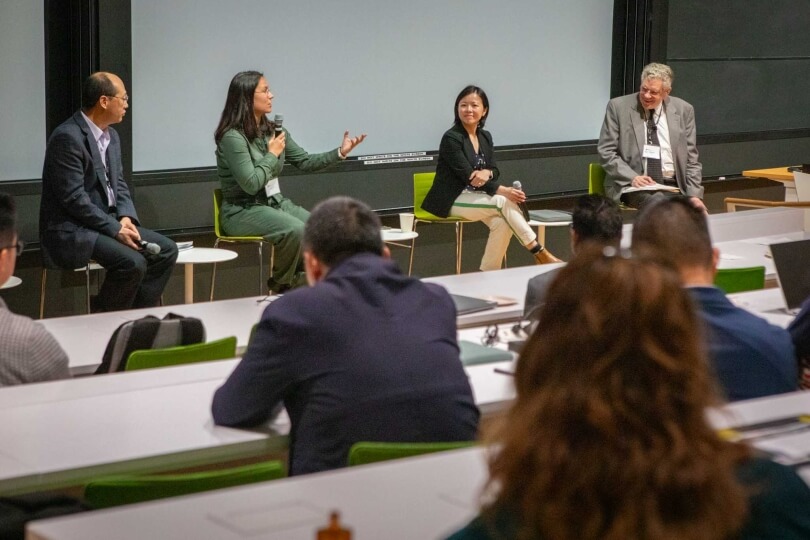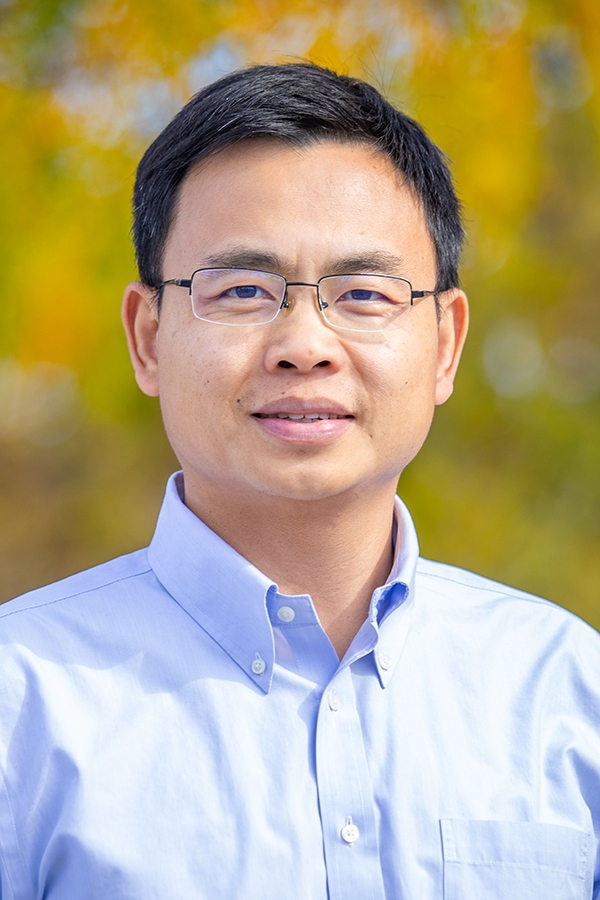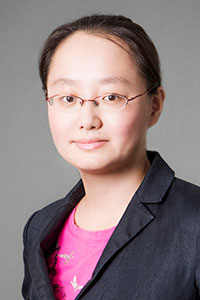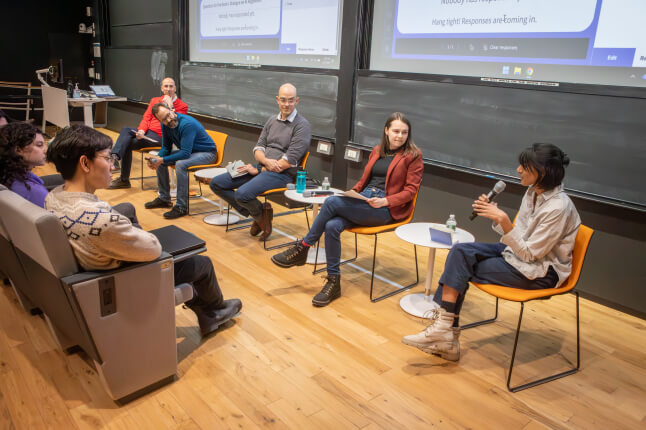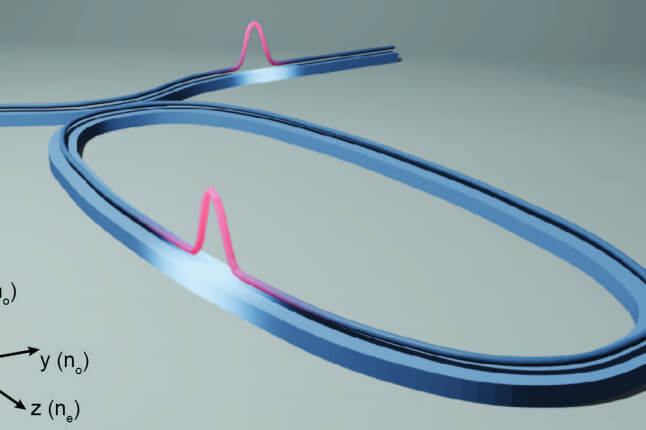News
This spring the Harvard John A. Paulson School of Engineering and Applied Sciences (SEAS) convened experts from academia, industry, and government for the inaugural Power and AI Symposium and accompanying Executive Short Course on Power Systems and Artificial Intelligence. The events were part of a broader initiative for integrating artificial intelligence with power systems to foster sustainable and efficient energy solutions.
“This symposium is more than a meeting of minds – it’s the start of a movement,” said Le Xie, Gordon McKay Professor of Electrical Engineering and co-director of the Power and AI Initiative at SEAS. “By bringing together leaders in AI, power systems, policy, and infrastructure, we’re building a new ecosystem of collaboration.”
PAI symposium
The May 20 PAI Symposium featured panels, academic lightning talks, and a poster session. Panel discussions focused on:
- Grid Reformation for AI Data Centers: Moderated by William Hogan from Harvard Kennedy School, this panel included Arin Kaye (EPRI), Carole-Jean Wu (Meta), and Tongxin Zheng (ISO New England). Discussions focused on adapting grid infrastructures to meet the escalating energy demands of AI data centers.
- Policy/Business Issues on AI and Power Grids: Led by Henry Lee of Harvard Kennedy School, panelists Erik Belz (Engine No.1), Keith Benes (formerly DOE), Pearl Donohoo-Vallett (FERC), and Howard Gugel (NERC) examined the evolving policy and business landscapes influenced by AI integration into power grids.
- Full Stack Redesign of AI Infrastructure for Energy Efficiency: Moderated by Minlan Yu of Harvard SEAS, with panelists Jeffrey Burns (IBM), Esha Choukse (Microsoft), Christos Kozyrakis (Nvidia), and Houle Gan (Google), this session delved into comprehensive redesigns of AI infrastructures aimed at enhancing energy efficiency.
- AI to Modernize the Grid: Francesca Dominici from Harvard T.H. Chan School of Public Health led this discussion with Asim Fazlagic (Eversource Energy), Prashant Kansal (ERCOT), Taiil Kim (Schneider Electric), and Xing Wang (AWS), focusing on leveraging AI to modernize and optimize grid operations.
The Power and AI Symposium convened experts from academia, industry, and government.
Launch of PowerAgent
Symposium leaders announced the launch of PowerAgent, the first open-source community dedicated to accelerating the development of large language model-powered tools and agentic AI in the power systems domain. PowerAgent bridges the gap between cutting-edge AI and the real-world needs of system operators, electric utilities, and researchers by creating a shared ecosystem of protocols, models, and workflows tailored for power applications.
“We built PowerAgent to be a collaborative space where researchers and engineers can come together to design AI-driven tools that solve real problems in the power grid,” said PowerAgent lead Ph.D. student Qian Zhang. “It’s about making advanced technology accessible and actionable for everyone in the field.”
Executive short course
The following day, SEAS offered an intensive Short Course on Power Systems and Artificial Intelligence: An Introduction, tailored for professionals in the energy and AI sectors. Designed to bridge the knowledge gap between power system engineers and AI practitioners, the course allowed participants to explore foundational concepts in grid operation alongside recent advances in AI applications for power systems, and energy-efficient AI infrastructure.
“Our goal is to create a common language between AI experts and power system engineers, enabling them to collaboratively develop solutions that are both technologically advanced and energy-efficient,” said Minlan Yu, Gordon McKay Professor of Computer Science and co-director of the PAI Initiative.
The PAI Initiative has identified four key research questions to guide its future: Market design; grid-data center architecture; AI for grid expansion; and policy feedback loops.
The initiative is already advancing several projects that lay the groundwork for future breakthroughs. These include research into energy-efficient AI training and inference systems; the application of large language models for tasks such as grid monitoring and forecasting; and the development of open-source datasets designed to support the training and evaluation of foundation models for power system applications.
Topics: AI / Machine Learning, Applied Computation, Applied Mathematics, Computational Science & Engineering, Data Sciences, Computer Science, Electrical Engineering, Environmental Science & Engineering
Cutting-edge science delivered direct to your inbox.
Join the Harvard SEAS mailing list.
Scientist Profiles
Press Contact
Anne J. Manning | amanning@seas.harvard.edu
